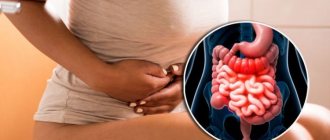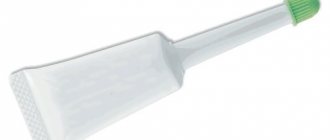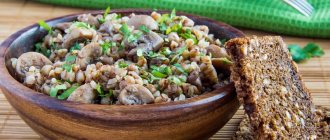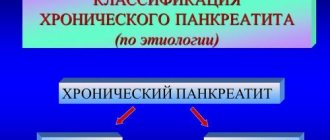The article was checked by pediatric endocrinologist Yamchenko A.Yu. , is for general informational purposes only and does not replace specialist advice. For recommendations on diagnosis and treatment, consultation with a doctor is necessary.
Problems in the functioning of the gastrointestinal tract are among the most common in children: according to statistics, on average, every seventh child suffers from some kind of disorder in the functioning of the stomach and intestines.
Timely detection and treatment of these diseases is very important, since gastrointestinal pathologies discovered in childhood are highly treatable. Specialists of the pediatric department of the Yauza Clinical Hospital pay great attention to the diagnosis of gastrointestinal diseases, using the most modern techniques, as well as advanced treatment technologies.
Features of the course of gastrointestinal diseases in children
Doctors note that a significant part of gastrointestinal diseases in children are functional disorders, that is, they do not have any organic causes. In this case, the functioning of the organ is really disrupted.
As a rule, functional disorders are associated with a disruption in the functioning of regulatory mechanisms: nervous or humoral. For example, this happens under stress (it is known that when children are worried, their stomach hurts), with secondary autonomic dystonia, etc. The Committee on the Study of Functional Disorders in Children and the International Working Group on the Development of Criteria for Functional Disorders created a classification of functional disorders in children, in which the main criterion is the predominant symptom:
- disorders manifested by vomiting
- disorders manifested by abdominal pain: functional dyspepsia, irritable bowel syndrome, functional abdominal pain, abdominal migraine and aerophagia
- stool disorders: childhood dyschezia (painful bowel movements), functional constipation, functional stool retention, functional encopresis (fecal incontinence)
Main types of gastrointestinal diseases in children
The most common gastrointestinal disorders in children include the following:
Stool disorders (diarrhea - constipation). There can be many reasons for such a disorder: food poisoning, infectious diseases, worms, enzyme deficiency, food allergies, inflammatory diseases of the gastrointestinal tract. An infant reacts with stool disorders to almost any external discomfort: a change in diet, teething, infectious diseases, climate change.
Gastritis is an acute or chronic inflammation of the gastric mucosa. With acute gastritis, the child complains of severe pain, vomiting, upset stool, and belching. With chronic gastritis, appetite is reduced, the child complains of moderate pain, and moments of intoxication are noted. Gastritis in children can develop independently, as a primary disease, or as a result of previous infections.
Gastroenteritis is an inflammatory disease of the mucous membrane of the small intestine and stomach. Most often, the development of gastroenteritis is associated with the action of various viruses (rotavirus), as well as with dysbacteriosis. The disease is characterized by pain, flatulence, vomiting, diarrhea, and the presence of blood in the stool. During treatment, the child is limited in nutrition, water balance is restored, and antiviral drugs are given.
Peptic ulcer is a chronic disease in which ulcers form in the stomach and duodenum. The disease occurs with periods of exacerbations and remissions. Duodenal ulcers are more common in children. Its cause is the bacterium Helicobacter pillory, and factors such as heredity, psycho-emotional background, and allergic diseases contribute to the development of ulcers. Peptic ulcer disease is characterized by severe pain and indigestion; it is advisable to treat the disease in a hospital.
Chronic cholecystitis is an inflammatory disease of the gallbladder, leading to impaired bile circulation. Patients complain of paroxysmal pain, which may be associated with eating fatty foods or physical activity. In older children, pain may be localized in an atypical area, for example, in the sternum. Also with this disease, biliary dyskinesia is observed.
Biliary dyskinesia is a change in tone and impaired motility of the biliary tract, which leads to disruptions in the flow of bile into the duodenum. Unfortunately, such pathologies occur in approximately 90% of children who suffer from gastrointestinal disorders. This disorder is based on a disorder in the regulation of the processes of contraction and relaxation of the gallbladder and sphincters.
Chronic pancreatitis is inflammation of the tissues and ducts of the pancreas. Children complain of acute pain in the epigastrium, they begin to develop dyspeptic disorders, and their body temperature rises. The development of pancreatitis can be facilitated by poor nutrition, incorrect diet (large gaps between meals), the use of a number of medications, and congenital features of the gastrointestinal tract.
Gut and brain
It is believed that our mood and psychological state can affect the digestive process. What do emotions have to do with it? If eating becomes stressful, it can affect the digestion process itself1. Many people know the lack of appetite in a stressful state, when the brain suppresses digestion and distributes the body's resources for flight or attack for the purpose of defense.
Sometimes overeating can be a way to relieve stress. Overeating can result from the habit of eating every last crumb, not out of hunger, but to receive praise and permission to eat sweets.
A child under two years old gains weight very quickly. From 2 to 5 years, his growth slows down, the need for food in proportion to his weight is no longer so great1. It is important for parents not to confuse these two concepts and to ensure that nutrition is optimal and not excessive.
Even if parents do not overfeed their child, this can happen during holidays, while visiting, or on vacation. The digestive system may not be prepared for the sudden overload.
The opposite situation is when a child refuses to eat. This may not just be a whim, but an attempt to avoid the unpleasant sensations that arise after eating certain products. Not all children can explain their feelings to their parents in detail and simply refuse what makes them uncomfortable. This is how a “dislike” for certain foods or dishes can develop and last a lifetime. This may indicate a lack of digestive enzymes for digesting any food component, for example, fats.
The main symptoms of indigestion in a child:
- heaviness in the stomach;
- discomfort after eating;
- bloating, rumbling;
- flatulence;
- nausea;
- pain.
Long-term digestive disorders can lead to diarrhea and even weight loss due to disruption of nutrient intake2.
Diagnosis and treatment of gastrointestinal diseases in the pediatric department of the Yauza Clinical Hospital
Since childhood diseases of the gastrointestinal tract are very diverse, it is necessary to carry out a comprehensive diagnosis, which makes it possible to establish a diagnosis with maximum accuracy . The list of diagnostic measures includes the following:
- blood test: general and biochemical, as well as for hepatitis markers
- general urine and stool analysis
- stool test for worm eggs
- scrapings
- tomography
- Ultrasound
- if necessary, x-ray examination
Depending on the established diagnosis and identified causes of the disease, doctors at the Yauza Clinical Hospital prescribe treatment. The therapy program is developed individually; various drugs are used for treatment, including prokinetics, probiotics, choleretic and other drugs. Since gastrointestinal diseases are complex in nature, children can be referred for consultation to a psychotherapist or neurologist.
Department of Pediatric Gastroenterology
Erosive proctitis. Mesadenitis.
29.06.18
Asked by: Elena
Hello Nika Vadimovna. I would like to make an appointment with you for a consultation. When will this be possible? For my son, 7 years old, on June 23, the pediatrician diagnosed an intestinal infection (vomiting and diarrhea, temperature 37.3) and prescribed treatment (kipferon, rehydron, smecta). 24.06 in the second half there was significant improvement, no vomiting, diarrhea or fever (we continue the treatment prescribed by the doctor). 06/25: excellent health, stool once, no complaints (we continue treatment). 26.06 in the morning the first stool without complaints, formed. The second time, after 2-3 hours, there is blood in the stool, but there are no abdominal pain, fever, vomiting or diarrhea. We went to the hospital and were admitted to surgery. Diagnosis: main-acute inf.gastroenterocolitis. Complications - Erosive proctitis. Mesadenitis. On June 27, he was transferred to the information department, a biochemical blood test was ready, a test for rotaviruses and adenoviruses was negative. The bacteriological analysis is not ready yet. 06/29 - we left the infection with a receipt (extract in hand).
Answer:
Elena, hello! You can make an appointment with me for a consultation at a time convenient for you after receiving the results of the bacteriological analysis. You will also need to bring your child's food diary, results and conclusions of all diagnostic, laboratory tests and consultations starting from the moment the child is born. I'm waiting for you at the clinic.
Chronic gastroduadenitis
02.06.18
Asked by: Victoria
The child is 4 years old, weight 12 kg. She wants to eat, but after a couple of spoons she says she’s full. Meals are scheduled, but if you wait too long, the child’s breath begins to smell like acetone. The doctor prescribed Creon, Phospholugel and Nexium. Is it possible to use Nexium if you have not been tested for acidity? What examinations need to be done? Thank you in advance!
Answer:
Dear Victoria, good afternoon! It is better not to give Nexium now, but to conduct the following examination: 1. Water-siphon test. It is carried out on an empty stomach. The cost of the study is 2700 rubles. 2. PCR stool for Helicobacter pylori infection - 440 rubles. 3. OAC (550 rubles + 150 blood sampling) 4. OAM - 410 rubles. And with the results, make an appointment with a gastroenterologist. Appointment with a clinic specialist—RUB 1,900. Reception of a leading specialist - 2500 rubles.
Child with Hirschsprung's disease
03.11.17
Asked by: Kristina Maslova
Nika Vadimovna, hello, please tell me, do you have experience working with this diagnosis? We had surgery in 2014, our daughter was 3 years old, and our shape was rectosigmoid. What tests do you need for your child at your appointment? Thank you, with uv. Maslova K.V.
Answer:
Hello! Yes. To conduct a consultation, I will need a discharge from the hospital, OAM, OAC, stool analysis, ultrasound of the abdominal cavity and stool analysis for dysbacteriosis.
Consultation
31.03.17
Asked by: Anna
Good afternoon The daughter is 11.5 years old and is significantly delayed in height and weight. There are no obvious problems from the gastrointestinal tract, except for a slightly reduced appetite, I suspect that there is a lack of digestion of food. From the side of endocrinology - autoimmune thyroiditis (takes thyroid hormones), constitutional growth retardation. The results of what tests and studies should be brought to the consultation?
Answer:
Good afternoon To conduct a consultation, I will need an ultrasound of the abdominal organs, as well as data from general clinical and biochemical studies.
Blood in the stool
22.02.17
Asked by: Oksana
Hello. Please tell me, a 2-year-old child has a small amount of blood in his stool about once a month, it started 3-4 months ago, the surgeon did palpation and did not feel anything, we had an ultrasound of the abdominal cavity, as a result: deformation of the gallbladder, enlarged pancreas and hardened spleen . We took coprology ph 5.0 reference values 6.0-8.0; the reaction to stercobilin was positive; neutral fat; salts of fatty acids in large quantities; rast. Fiber is not digested in large quantities; fiber is digested in large quantities; iodophilic flora in a small count; iodophil flora patol in a small amount; single oxalate crystals; mucus small columnar epithelium single; squamous epithelium; There are only a few leukocytes in the preparation. Hidden blood negative. Tell me who to contact to make a diagnosis, and what about scatology, is there anything terrible in the tests? Could the blood be due to polyps? How can I check this? Or tell me what examinations need to be done? A gastroenterologist from the clinic says that there may be reflux. She prescribed bifiform, motilium and pangrol. I’ll add that the baby recently started spitting up 1-2 rubles per month.
Answer:
Hello! To clarify the diagnosis, you need to give your child a general blood test and come to me for an in-person consultation. Polyps are unlikely; most likely, the child’s diet needs to be adjusted and allergens removed from the diet.
Loose stools with mucus and abdominal pain
02.01.17
Asked by: Julia
Good afternoon My daughter is 1.5 years old and has had severe gas and abdominal pain since birth (apparently from gas). We eat little from food; we react to everything with abdominal pain and gas. A week ago I had a gastrointestinal breakdown (I think after buckwheat and cucumber). I started having loose stools with mucus 1-2 times a day and sooooo much gas, they pass very poorly. The child is restless, I can’t put him to sleep for 2 hours. From complementary foods, I left only gluten-free oatmeal, rice, zucchini, rabbit, a little potatoes, bread, baked apple, hydrolyzed mixture. You can only make an appointment with the doctor in a week. I started giving Creon (day 6) and Rela Life drops (day 1). I haven't noticed any improvements yet. Could this be an infection (infrequent stools, no fever)? Or is it more like a functional disorder of the gastrointestinal tract? They did an ultrasound - the gallstone was bent and the liver was enlarged by 2cm. I can’t collect feces for analysis - it gets absorbed into the diaper (Is there anything else that can/should be done before going to the doctor? Thank you very much
Answer:
Good afternoon With such symptoms, I can add to the treatment either Smecta 1 sachet per day (several doses between meals), or Enterosgel (a teaspoon 2-3 times a day between meals). Try to have a general stool test before your doctor's appointment. For further treatment tactics, you need to make an appointment with a gastroenterologist.
Antibiotics - abdominal pain in a child
21.10.16
Asks: hope
Hello ! A 7-year-old child has a sore throat. Treatment was prescribed: Flemoxin salutab 250 mg 3 times a day, enterol 1 capsule 2 times, fenistil, rinse. The boy was born with lactase deficiency. During his life there were problems with the gastrointestinal tract. There was a history of enlarged gallbladder, reactive changes in the pancreas, and 2 times in 5 and 6 years there was an enlargement of the mesenteric lymph nodes: mesadenitis was diagnosed. Autumn, spring we take courses of treatment. The child had previously periodically complained of abdominal pain in the navel area, but now that they started taking antibiotics, these pains began to occur 5-6 times during the day, plus 2-3 times loose stool with pieces of indigestible food. Our doctor at the site is on vacation, others don’t offer anything. Maybe we should change the antibiotic or quit, but we were prescribed it for 10 days. They didn’t take a throat swab.
Answer:
Good afternoon Acute tonsillitis requires antibiotic treatment for at least 7 days. Continue Enterol; for pain, you can take no-shpa (1 tablet). It is better to show the child to a pediatrician or gastroenterologist to determine further treatment tactics.
Dyskinesia in a 6 year old child
25.03.16
Asked by: Elena
Olga Nikolaevna! Thank you for your reply! Please tell me what type of gastrointestinal lesion can be suspected? The fact is that we live in a small village, the nearest medical institution is 90 km away from us and there is no gastroenterologist there, alas! How urgently should I act? Treatment was prescribed for us for 2 weeks. Thank you in advance!
Answer:
Good afternoon! Such symptoms may occur with gastroduodenitis or helminthic infestation. If complaints persist for several days, then it makes sense to have the child have a gastroscopy with examination for Helicobacter pylori infection, and test feces for worm eggs. With the results of the examination, contact your pediatrician to adjust treatment. Health to your child!
Dyskinesia in a 6-year-old child
24.03.16
Asked by: Elena
Good day, Olga Nikolaevna! The child complains of constant nausea. In the morning, on an empty stomach, during the day, after meals and regardless of meals. No temperature. The child is mobile and active. Appetite is good. The abdomen is painless on palpation. There is no seething or swelling. The stool is daily formed, without an unpleasant odor. The coprogram is normal. mushrooms etc. slightly. I/G no. Urine is normal. Blood: 143-6,7-5 formula p4, s43, e3, m5, l45. Sugar 5. Ultrasound examination: The liver is normal. The pancreas is normal. The spleen is normal. Gallbladder: bend in the body area. Dz. Dikinesia zhvp. Treatment: Odeston 1/2t. 3rd day Filter 1t. 2w.d. Antispasmodic for the condition, but the child does not need it because no pain! Diet, fractional meals. Therapy is carried out over 5 days. There is no positive result, complaints of nausea persist. The medical history is aggravated by constant recurrent aphthous stomatitis. Now I have two ulcers in my mouth. Tell me, how soon should the effect of treatment occur? Is there any additional research that needs to be done? Can stomatitis and dyskinesia be related? Perhaps these are symptoms of the same disease? Thank you in advance. Elena.
Answer:
Good day, Elena! These complaints - nausea and aphthous stomatitis indicate damage to the gastrointestinal tract and not always only the biliary tract. The treatment prescribed by your doctor can only be effective if the gallbladder is not functioning correctly. If relief does not occur within 5-6 days, then you should re-appoint yourself with a gastroenterologist for examination and treatment adjustment. The need for additional examinations is decided by the doctor after a second examination.
Help is needed
21.03.16
Asked by: Pashkovets Olga Aleksandrovna
After taking the mixture, 1-2 hours later we vomit curdled milk with a sour smell. After 3-4 hours, we vomit sour water that tastes bitter. There is no such thing after dairy-free porridge. He doesn't sleep well at night. Constantly tosses and turns, arches and cries. What could it be and what tests need to be taken. The child is seven months old.
Answer:
Good afternoon!
These symptoms may indicate that the child has gastroesophageal reflux. To exclude this diagnosis, it would be good to conduct a water-siphon test - this is an ultrasound examination that is performed after eating. In addition, you need to do a general blood test and see a gastroenterologist. See more...











